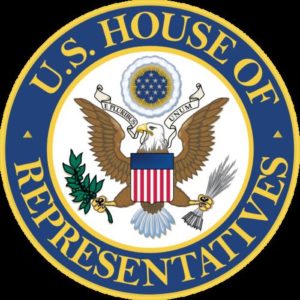By Jim Ellis
 April 21, 2020 — The April 15 deadline for releasing the 1st Quarter 2020 campaign finance reports has come and gone, so we can now begin to assess where some of the key campaigns stand with regard to their fundraising, spending, and available resources. The races headed to special elections are best defined; hence, we begin our series with this group.
April 21, 2020 — The April 15 deadline for releasing the 1st Quarter 2020 campaign finance reports has come and gone, so we can now begin to assess where some of the key campaigns stand with regard to their fundraising, spending, and available resources. The races headed to special elections are best defined; hence, we begin our series with this group.
Three special general elections will culminate in May and June. On May 12, voters in California and Wisconsin will select new House members. The New York special election follows on June 23.
The California special vote to replace resigned Rep. Katie Hill (D) in the Los Angeles/Ventura County 25th District is between state Assemblywoman Christy Smith (D-Newhall) and Republican retired Navy fighter pilot Mike Garcia.
This race looks to be about even across the board, so it may be an interesting precursor for the 2020 general elections. While Smith placed first in the special and regular primaries by relatively substantial margins (11 points in the special; 9 points in the regular), the combined Republican vote among the 13 candidates in the latter election’s jungle format was actually greater than the combined Democratic vote.
In terms of spending according to the just released numbers, Smith expended $1.529 million in the first set of elections as compared to Garcia’s $1.462 million. First quarter fundraising favors Garcia, $277,234 opposite Smith’s $258,972. Garcia also led in cash-on-hand at the end of March, $446,742 to $357,256. Each candidate can also expect at least $1 million coming into the district from party and outside organizations to aid their respective cause.
Regardless of what happens in the special election, both of these candidates have ballot position in the November general election to battle for the regular term beginning in 2021. The special election to fill the balance of the unexpired term is an all-mail exercise scheduled for May 12.
Also on May 12, northwestern Wisconsin’s 7th Congressional District vacancy will be filled. In late August, five-term Rep. Sean Duffy (R-Wausau) resigned for family reasons and the special election to replace him is just about upon us. In the early April special primary, state senator Tom Tiffany (R-Minocqua) and Wausau School Board member Tricia Zunker (D) advanced to the special general. The winner will serve the balance of the current term, and at least the future new member will file to compete in the regular election by the June 1 candidate filing deadline. The regular Wisconsin primary is scheduled for Aug. 11.
Sen. Tiffany is favored in the special election largely because the seat has transformed into a safe Republican domain during the present decade. Even in the state Supreme Court race that was just held in early April and went badly for Republicans, the defeated GOP candidate, though in a non-partisan election, still carried 52 percent of the vote in District 7 even when losing badly statewide.
It also appears that national Democrats and outside progressive left groups are not putting much effort into this race, thus virtually conceding to Tiffany. Looking at the financials, the Republican state legislator raised over $480,000 in the first quarter as compared to $153,000 for Zunker. It is important to remember, however, that the special election was held after the books closed on the first quarter and Sen. Tiffany had a competitive primary contest while Zunker did not.
Still, after spending most of his money to win the primary, Sen. Tiffany reported a March 31 cash-on-hand figure of $251,940 as compared to only $109,150 for Zunker. In terms of total campaign spending, Sen. Tiffany has already expended over $957,000 in comparison to just $188,980 for Zunker.
On June 23, New York state senator Chris Jacobs (R-Buffalo) and former Grand Island town supervisor and 2018 Democratic congressional nominee Nate McMurray will battle to succeed resigned Rep. Chris Collins (R-Clarence/Batavia).
Because of postponing this election from April 28 to June 23 due to Coronavirus precautions, Jacobs must run in a special election against McMurry and a primary for the regular term against two formidable Republican primary candidates on the same day. Therefore, spending for him will be high because he must simultaneously campaign before what is in reality two distinct electorates against different opponents.
Therefore, it is not surprising to see Sen. Jacobs holding a money lead over Mr. McMurray, but a large reason for the monetary disparity is the Senator’s ability to self-fund his campaign to the degree of $446,000. Through the end of March, Sen. Jacobs has spent $729,584 as compared to McMurray’s $346,456.
We will have more on this unique campaign in the future, but it is clear we will see McMurray getting outside help in this special election. The fact that Sen. Jacobs may be torn in concurrently running a general election message along with one for the Republican primary against candidates more conservative than he makes this a campaign of note and may open a path for the Democrats in what is normally considered a safely Republican Upstate New York congressional seat.
